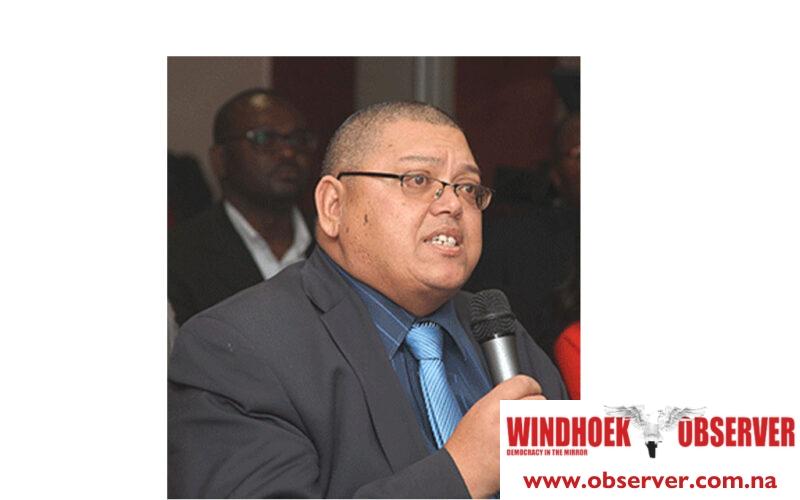Niël Terblanché
During a consultative meeting held in Walvis Bay, Derek Klazen, Namibia’s Minister of Fisheries and Marine Resources, addressed the concerns and grievances of fishermen re-employed under the Government Employment Redressing Programme (GERP) on Thursday at Walvis Bay.
Klazen, clarified that GERP is not a continuation of the fishermen’s previous jobs at sea but a new employment offer within the fishing supply chain, encompassing catching, freezing, packaging, marketing, and sales of fish and related products.
He acknowledged the challenges faced by GERP, including genuine concerns and others influenced by political opportunism and personal interests.
He said that many grievances were brought about by a lack of understanding of labour laws and dispute resolution mechanisms.
“Despite these challenges, the government remains committed to supporting the re-employed fishermen and addressing their concerns in collaboration with employers,” he said.
Klazen said that the meeting was aimed at providing a platform for open dialogue, allowing fishermen to voice their grievances and employers to respond and offer explanations.
Key issues discussed included the employment conditions under GERP, the nature of the jobs provided, and the challenges of re-integrating fishermen into new roles within the fishing industry.
Klazen was adamant about the fact that the government is not an adversary but a partner in this process, committed to providing dignity and sustenance to the affected fishermen.
He stressed the importance of effective communication and collective decision-making to overcome the challenges faced by GERP.
“As part of the ongoing efforts to improve the program, the government and relevant ministries are working on enhancing understanding and compliance with labour laws, ensuring that the re-employed fishermen receive the support and representation they need,” he said.
According to the minister, the goal is to secure a reliable source of income for these fishermen, whether employed at sea or on factory floors, thereby enabling them to support their families and restore their dignity.
“Despite the difficulties, the government’s primary objective is to ensure that every fisherman affected by past job losses has access to gainful employment and a stable monthly income,” he said.
Klazen called for unity and cooperation among all stakeholders to address the issues raised and work towards a more effective and sustainable employment program for Namibia’s fishermen.
Klazen stressed the importance of such consultations to ensure smooth operations and sound labour relations within the fishing industry, particularly among employees under GERP.
He said that the GERP was initiated following a Cabinet decision directing the Ministries of Fisheries and Labour to secure full-time or permanent employment for former NAMSOV employees and others who lost their jobs in the fishing industry in 2015.
“Through GERP, a total of 2 483 former fishermen have been re-employed, with 550 in the horse mackerel sub-sector and 1 933 in the hake sub-sector,” he said.
The minister added that the re-employment of people was made possible by allocating 18 370 tonnes of hake and 16 500 tonnes of horse mackerel to selected fishing companies.
The meeting was also attended by Hafeni Ndemula, the Deputy Minister of Labour, Industrial Relations, and Job Creation, along with various employers and representatives of the fishermen who have benefitted from the programme.




